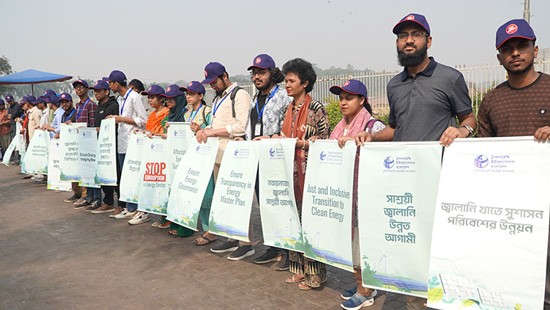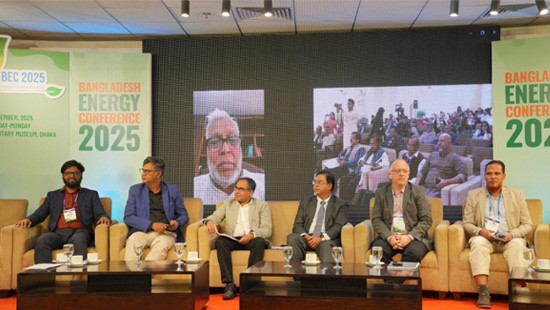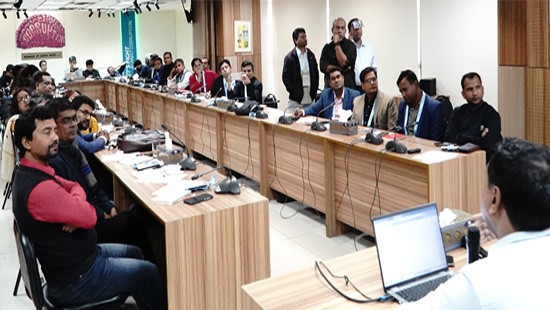Published: 02 June 2025
Despite the rain, nearly 200 students from public and private universities began gathering at the University of Dhaka campus on Sunday morning. Drenched but undeterred, the youth started collecting plastic waste from different parts of the campus. Their mission: to sound the alarm about plastic pollution and prove that a clean, plastic-pollution-free city is achievable through united action.
Marking World Environment Day 2025, Transparency International Bangladesh (TIB) and the Department of Geography and Environment of the University of Dhaka jointly organized the initiative. Held on Sunday, June 1, the event aimed to engage youth and featured a rally calling for collective action and strict enforcement of laws to end plastic pollution by 2040, in line with the Government of Bangladesh’s target.
This year’s local theme was: “Everyone, Together Now, to End Plastic Pollution,” aligning with the global theme: “Beat Plastic Pollution.” Students from the University of Dhaka, Jagannath University, and Stamford University participated in the event.
Unite and Enforce: End Plastic Pollution by 2040
Before the rally began, the urgency of the plastic pollution crisis was strongly underscored. TIB Executive Director Dr. Iftekharuzzaman warned that unchecked environmental pollution—especially from plastic—poses serious and long-lasting threats to countries like Bangladesh. He called for stronger laws and a clear roadmap to make the country plastic-pollution-free by 2040. This, he stressed, requires enhanced waste management capacity in city corporations and greater transparency in environmental protection efforts. He emphasized that the fight against plastic pollution demands collective action, as meaningful progress is still lagging. “It’s not enough to leave it to the government,” he said. “Everyone must step up, stay aware, and take action.” Simple changes in daily habits—like reducing plastic use—can make a real difference. He urged immediate, united efforts to make Dhaka a plastic-free city.
DU Vice-Chancellor Professor Niaz Ahmed Chowdhury powerfully stated that no single institution can tackle the plastic crisis alone. He praised the event as a strong example of unity and shared commitment to protecting the environment, and expressed gratitude to all involved in the anti-plastic movement. Among others, Professor Dr. M. Shahidul Islam (University of Dhaka), Professor Dr. Ahmad Kamruzzaman Majumder (Stamford University), and Professor Dr. Mohammad Abdul Quader (Jagannath University) also addressed the rally.
Plastic Pollution in Bangladesh: The Current Crisis

Initiative across country against plastic pollution
In addition to the clean-up drive, TIB’s volunteer network of students and committed citizens including Youth Engagement Support (YES), Active Citizens’ Group (ACG) and Committee of Concerned Citizens (CCC) respectively organized various awareness-raising programmes in 38 districts and 7 Upazilas of Bangladesh. Among them, defying full monsoon, the CCCs of Khagrachari, Sreemangal and Rangamati stood in a human chain while the CCC of Khulna visited the Deputy Commissioner’s office to submit a memorandum demanding effective measures against plastic pollution.





















